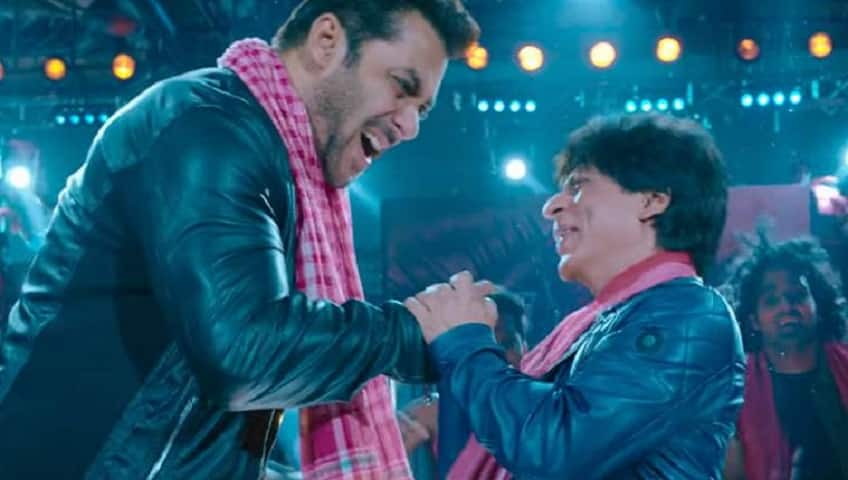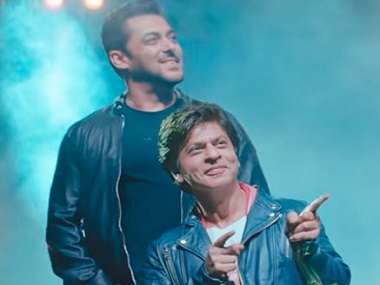Hindi cinema is made for Hindi-speaking audiences. In essence, India’s busiest filmmaking industry aims to reach the Hindi heartland -be it the geographical landmass consisting of Punjab, Haryana, Uttarakhand, Uttar Pradesh, Bihar, Rajasthan, Chhattisgarh, Madhya Pradesh, Gujarat, or the migrant population from these states, who reside across the country and worldwide. While the ’90s and the early 2000s were spent imitating and regurgitating a standardised Punjabi version of life, love and emotions, the Hindi heartland has now taken center stage with pride in the mainstream. Often the Bihari or ‘Bhaiyya’ in Hindi films has been a caricature or an unpleasant character. Refreshingly, this year has seen authentic Hindi heartland-based stories, rooted and original, winning big at the box office. This space has finally solidified with genuine, believable films. In its mannerisms, accents, dialects and local cultural quirks, the heartland has a well-defined identity and age-old traditions of storytelling. Manifesting these in contemporary times has made the films fresh and appealing this year. [caption id=“attachment_5575321” align=“alignnone” width=“848”]  Salman Khan and Shah Rukh Khan in a still from Zero[/caption] Hearteningly, a superstar like Shah Rukh Khan has played a vertically challenged man from Meerut in the upcoming big flick Zero, having travelled quite a long distance from the urbane, suave versions of Rahul and Raj that he is played for most of his career. That films like Raid, Stree, Mulk and Sui Dhaaga: Made in India have done so well is testimony to the fact that localised stories around ground realities and with genuine characters successfully work, and draw in audiences based on word of mouth. Crime, guns and womanising- cliches about the Hindi heartland come together in the recent gritty series Mirzapur. Made for Amazon Prime Video India and produced by Excel Entertainment, Karan Anshuman ropes in an impressive cast of actors - Ali Fazal, Pankaj Tripathi, Vikrant Massey, Shweta Tripathi and Divyendu Sharma among others - in this fast-paced web show. Typical sensibilities associated with this region, often called the cow belt in political terminology, add up to the right recipe for a gripping story. Interestingly, the filmmakers and writers, who have created each of these films or shows, either belong to that region or have grown up here. They have spent time understanding the local culture, language and customs, and adapted the same to cinema convincingly. The heartland’s appeal was limited to hyper-dramatic cop and political dramas for almost two decades. While some films, like Prakash Jha’s Gangajal, Apaharan and Raajneeti made for engaging viewing, more often than not, the heartland was stereotyped. Few films cut through the clutter. [caption id=“attachment_5494351” align=“alignnone” width=“1200”]  Shah Rukh Khan in a still from Zero[/caption] The clock turned towards positive change when stories went beyond the cliché of good cops, bad politicians, or family dramas. A good chunk of this credit goes to the inimical Vishal Bharadwaj for making Omkara. Abusing uninhibitedly in Hindi, while capturing the nuanced underlying politics of heartland Uttar Pradesh was done masterfully in this film. Some years passed after his film for more such authentic, rooted stories to emerge. So we had Abhishek Chaubey make the brilliant Ishqiya films; subtle, linguistically befuddling but smart adaptations from culturally distinct places in Bihar and Uttar Pradesh. Ashwini Iyer Tewari, Tamil by origin and a Mumbai girl, used the lens of an outsider to merge aesthetics and obsessions of small town UP to tell a compelling story of a domestic help’s desire to educate her daughter and make her an IAS officer in Nil Battey Sannata. It is an unsung film, one that gets the story so right. The passion to become a civil servant rules almost every aspect of a student’s life in these states. Ashwini has also made the entertaining Bareilly Ki Barfi, more commercial in intent but equally desi in flavour. And then there is Anurag Kashyap, who has adapted the culture of Bihari goondaism and its iron grip over the state’s politics beautifully in the Gangs of Wasseypur films. Self-indulgent to an extent, both the parts are uncompromising in their ‘Bihar Ka Lalla’ identity; adding flavour to these stories. Kashyap’s Manmarziyaan also turns romantic stories of Punjab on its head quite well. It is urbane and set to become a gradual cult film over time. But the team that has made the Hindi heartland come home to roost in Bollywood is that of filmmaker Anand L Rai and writer Hemanshu Sharma. Their films have adapted local mannerisms and linguistic quirks for wider appeal in a manner that does not always depend on stars for success. Raanjhanaa provides an ideal example, with Dhanush’s character ready to give up everything for love, or rather, the bull headnesses of one-sided love. Their ability to build upon small town North Indian elements continues with Zero. SRK, Anushka Sharma and Katrina Kaif make this film a big draw, but Meerut’s Bauua Singh and his bittersweet experiences with love drive this story. These are not always the best stories. Yet, they work well with audiences because emotions and reactions are unfiltered and dialogues, very catchy. Each character, however minor, has a role to play in taking the story forward, cracking the heartland phenomenon of families, friends and foes all being part of life in significant decisions. In 2018, films that brought the heartland’s stories alive emerged from local influences that impacted their writers and directors. Sui Dhaaga: Made in India emerged from the basic idea of a self-made man, an artisan, standing up against machines. Writer and director Sharat Katariya saw a tailor set up shop under a tree in his hometown, Delhi, when this idea occurred to him. His Delhi if of those who live in the city’s outskirts, eke out a living and leave behind a rich legacy of working with their traditional skills. His earlier film, Dum Laga Ke Haisha, beautifully portrays the lower middle class realities of families in Haridwar, a town somewhat warped in time. Similarly, Amar Kaushik, who has grown up in Arunachal Pradesh but spent ample time in Chanderi while visiting family, captured local superstition to deliver a message film in the most entertaining manner, with Stree. Rajkumar Gupta wanted to focus on an everyday hero with Raid. Anubhav Sinha has grown up and travelled through Banaras and smaller cities of Uttar Pradesh before moving to Mumbai in order to work in films. Sinha’s urbane movies are poor shows. But his return to roots with Mulk, which began with slow travel back in his home state, made this story come alive for him. Importantly, in each of these films, stars are part of a story. The story gets your attention without depending on a big star’s name. Going beyond the garish and clichéd, India’s heartland, often likened to crimes, superstition, messy politics and prejudice against women, is viewed with an amount of skepticism by urbanites. All these negatives are part of its reality. But there are also good people, positive beginnings and very interesting stories that emerge from here. As these films find a footing with audiences across India today, heartland-based films hold out opportunities for more stories in an industry starved of originality. Imtiaz Ali’s Radha Krishna film promises to be one and hopefully, there will be more varied explorations of these kind. All images from YouTube.
Taking a detour from his urbane avatars of Raj and Rahul, Shah Rukh Khan will be seen as a vertically challenged Meerut man in Aanand L Rai’s Zero.
Advertisement
End of Article


)
)
)
)
)
)
)
)
)



